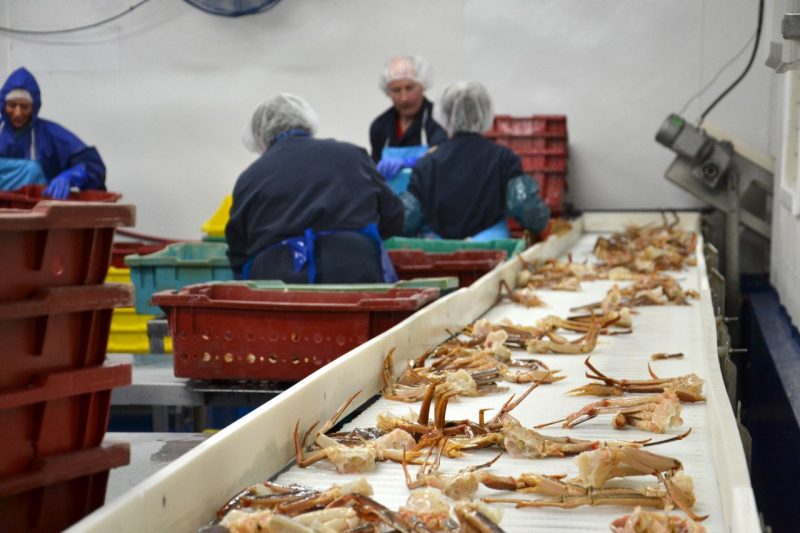Lori Kennedy, IWEC past awardee and CEO Louisbourg Seafoods, leads her company forward in the face of the positive European Trade Agreement
—-
![Lori Kennedy[2]](http://iwecawards.com/wp-content/uploads/2017/02/Lori-Kennedy2-491x736.jpg)
Cape Breton Post – January 27, 2017
SYDNEY, N.S. – These days, the majority of products produced by Louisbourg Seafoods are shipped off to markets in the United States.
“They all work depending on the window of opportunity going into a particular country in Europe,” said Dannie Hansen, vice-president of sustainability and corporate affairs for the seafood company, about tariffs and trade.
“Sometimes mussels will open for a two-week window when their mussels are dead, so ours can get in there.”
Even with an open window, tariffs ranged from 8-14 per cent on some products and as high as 23 per cent on others.
A better European business environment for companies like Louisbourg Seafoods could come soon as Canada and Europe move closer to a trade agreement that will remove most tariffs.
“Good food is what they are looking for and we have it,” said Hansen.
New opportunities for much of Cape Breton could come after formal ratification of CETA (Comprehensive Economic Trade Agreement), according to Mark Eyking, MP for Sydney-Victoria and chair of the standing committee on international trade, who will return to Ottawa on Monday to table the agreement in the House of Commons.
Eyking’s expectations are that European counterparts will do the same in the coming months to set up a virtually tariff-free trading zone.
“I see no reason that it is not going to go through because of the benefits for Canada in there,” Eyking said during an interview with the Cape Breton Post.
From a numbers perspective, the MP said Europe is Nova Scotia’s second biggest trading partner.
Fish represents 45 per cent of trade for about $200 million annually and Eyking said a third of that fish trade comes from Cape Breton.
A ratified CETA deal will remove 96 per cent of tariffs on products that can sometimes add up to as much as 25 per cent, he said.
“It is going to give us a very good advantage. It’s an opportunity to open that market and sell more markets and at a better return.”
The trade agreement with Europe should also increase traffic going back and forth across the ocean, which means more traffic for Atlantic Canadian ports, including one proposed for Cape Breton.
“I think there is going to be a great opportunity from the whole transportation hub that is going to be happening.”
The fact the United States does not have a European trade agreement could also make Atlantic Canada an entry point to North American markets, he noted.
“I see Atlantic Canada and the potential for Cape Breton to be the gateway for a lot of the products that are going to be going back and forth.”
Eyking’s work with the standing committee on international trade also included extensive efforts associated with the Trans-Pacific Partnership.
Though that partnership was scuttled when newly elected American president Donald Trump pulled out of it, Eyking said the work still produced valuable information that can be used in other trade talks.
Future work for the committee may include more bilateral agreements rather than ones that resemble the TPP multilateral proposal.
He said Canada has already been talking to the British who are interested in that kind of one-to-one agreement.
As for American trade, Canada’s trade committee will travel to the United States this spring to remind senators and congressmen from some 35 states that billions of dollars worth of goods still travel back and forth across the Canada/U.S.A. border each year.
“On the trade side I think we are going to be OK. I think we have a good relationship,” he said.
“Do we need to reach out to our American counterparts a little more? We have to do a little more homework, no doubt about it, but our committee is up to it.”


